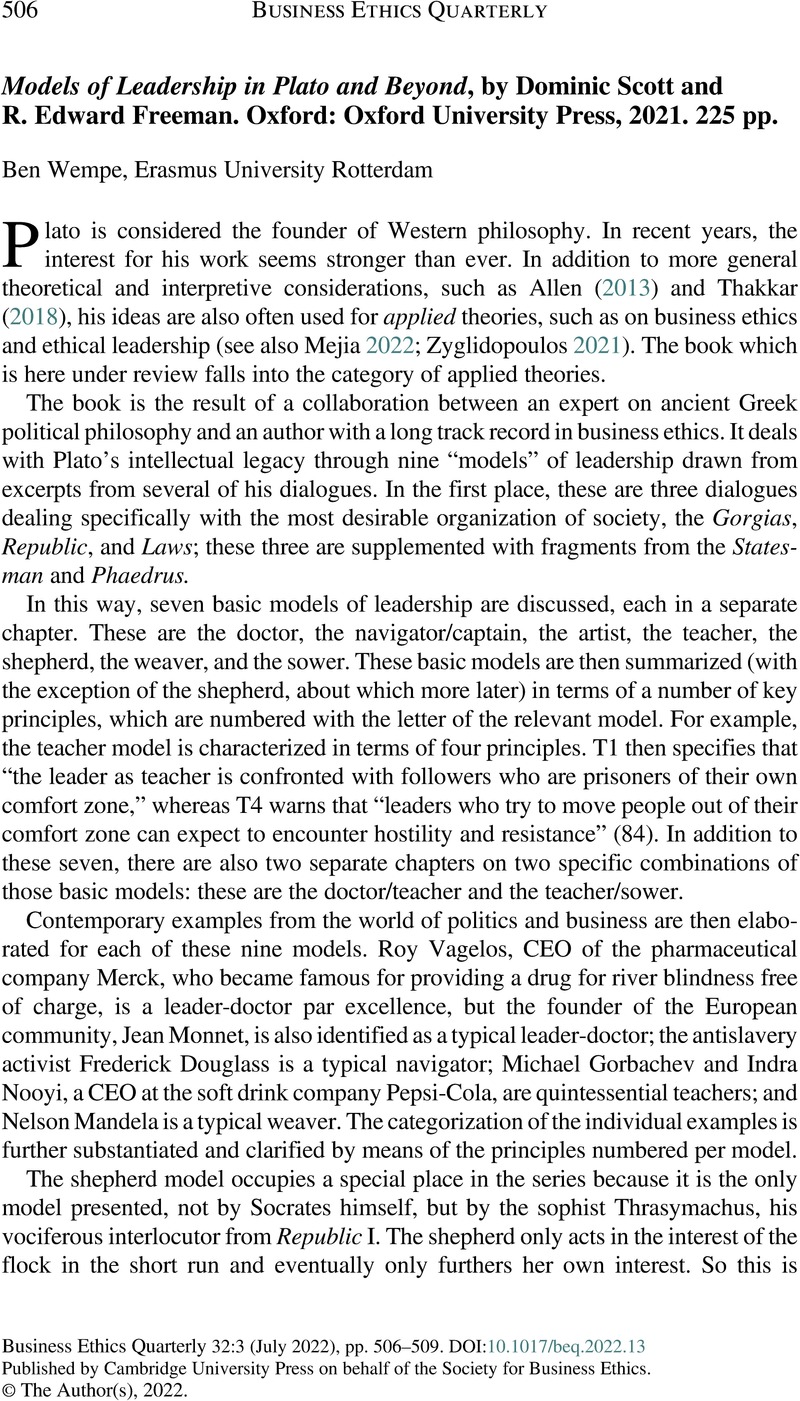No CrossRef data available.
Article contents
Models of Leadership in Plato and Beyond, by Dominic Scott and R. Edward Freeman. Oxford: Oxford University Press, 2021. 225 pp.
Review products
Models of Leadership in Plato and Beyond, by Dominic Scott and R. Edward Freeman. Oxford: Oxford University Press, 2021. 225 pp.
Published online by Cambridge University Press: 11 July 2022
Abstract
An abstract is not available for this content so a preview has been provided. Please use the Get access link above for information on how to access this content.

- Type
- Book Review
- Information
- Copyright
- © The Author(s), 2022. Published by Cambridge University Press on behalf of the Society for Business Ethics
References
REFERENCES
Collins, Jim. 2005. “Level 5 Leadership: The Triumph of Humility and Fierce Resolve.” Harvard Business Review 83: 136–47.Google Scholar
Greenleaf, Robert. 1977. Servant Leadership: A Journey into the Nature of Legitimate Power and Greatness. New York: Paulist Press.Google Scholar
Mejia, Santiago. 2022. “Socratic Ignorance and Business Ethics,” Journal of Business Ethics 175: 537–53.CrossRefGoogle Scholar
Thakkar, Jonny. 2018. Plato as Critical Theorist. Cambridge, MA: Harvard University Press.Google Scholar
Zyglidopoulos, Stelios. 2021. “On Becoming and Being an Ethical Leader: A Platonic Interpretation.” Journal of Business Ethics 173: 1–11.Google Scholar


